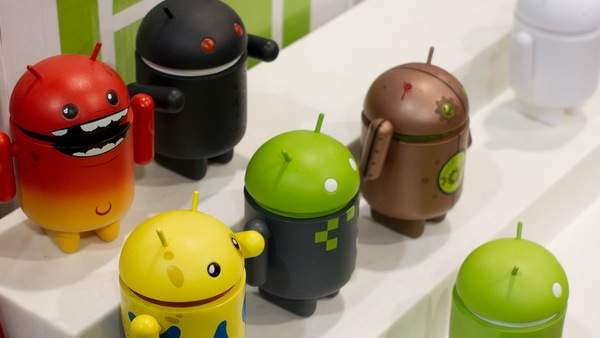
That's 700,000 a day, 21 million a month or 63 million per quarter. What about iOS? Apple won't likely reveal numbers until January, when announcing holiday quarter results. Don't expect them to be anywhere near as high, but not trailing way far behind, either. Android activations are lopsided, mostly from smartphones, while iOS sees traction on handsets and media tablets.
Android head honcho Andy Rubin revealed the activations last night in a Google+ post: "There are now over 700,000 Android devices activated every day". He later qualified, and this is important: "For those wondering, we count each device only once (ie, we don't count re-sold devices), and 'activations' means you go into a store, buy a device, put it on the network by subscribing to a wireless service".
My immediate reaction: "Say what? Subscribing to a wireless service, not first sign-in with a Google account? If so, the 700,000 per day number could understate real world sales by, for example, not counting WiFi tablets and other devices, such as Google TV. Other people reading Rubin's posts wondered the same thing. "So this means you don't count wi-fi only devices?" John Nichols asked. Rubins hasn't answered.
At the least, Rubin's qualification means that Google isn't overstating the numbers and that activations more closely reflect actual sales.
So what about Apple? I've seen several financial analysts modeling 30 million iPhones for the holiday quarter, and there Apple appears to be getting a big boost at the low end from older models: iPhone 3GS for free and 4 for 99 bucks. Then last week, based on weeks-old survey data, Morgan Stanley analyst Katy Huberty raised her estimates to 31 million to 36 million unit shipments. That's into the channel and not necessarily units sold, but still a big number. She estimates 190 million next year.
Then there is iPad, for which I've seen 13 million to 14 million units. Being generous to Apple, and looking at the upper-end estimate, that's 50 million iPhones and iPads -- and ignores iPod touch. I don't see any way iOS can match Android during the quarter, but it won't be light years behind either. Assuming only 50 million, that's more than 555,555 per day or 385 per minute. That's no shabby number. Again, those figures ignore iPod touch and represent shipments, which assumes some number in inventory. Android activations presumably represent sales.
Platform Wars
As I wrote on June 30: "Android is unstoppable", which in part explains Apple's patent bullying major Android competitors HTC and Samsung. Apple sunk to new patent troll lows this week, by going after Samsung smartphone and tablet cases -- not legal ones but the skins you put your devices in. The company is trying to win through legal intimidation what it loses in the market place.
Android versus iOS is a platform war -- plain, pure and simple. It's one Google and its partners largely engage by competition but where Apple uses competition, intimidation and litigation. True HTC and Samsung are fighting back with their own patent claims, but Apple started the patent war. Surely Apple top brass see what's at stake. Markets like the United States are rapidly saturating -- there aren't many more big smartphone sales cycles left. Emerging markets like China will belong to whomever gains share fastest and builds out a supporting ecosystem.
I don't often quote other journalists, saving that distinction for analysts and others, but Mat Honan's Gizmodo post "If Apple wins, we all lose" caught my attention, in part because it's the kind of headline I would write. Honan opines:
I don't think it's so clear that it would ultimately be good for Apple to kill Android in the courts. And it certainly won't help consumers...I'm all for seeing Apple defend its intellectual property. But Android is a healthy force in the marketplace. If Apple can destroy it there, more power to Tim Cook and company. But if Apple beats Android in the courts rather than the marketplace -- if it out-segs Google instead of out-innovating it—that may be great for Apple, but it will be bad for society, bad for technology, and ultimately bad for Apple.
And of course, the great irony is that so much of the amazing innovation that Apple pulled off over the past three decades can be traced back to its willingness to swipe ideas from Xerox. Steve jobs was fond of quoting Picasso, saying 'good artists copy, great artists steal'. If Apple does succeed in crushing Android in the courts, where will it get its next great idea? My guess is that it won't come from a lawyer.
From early 1999 until this summer, I primarily was an Apple user. I switched to Android and Windows for three main reasons. Disgust at Apple patent bullying was one of them. I hope Android and iOS both succeed. There's plenty of room for 1 million activations/sales per day of both, and we should all benefit from innovation that competition spurs.

